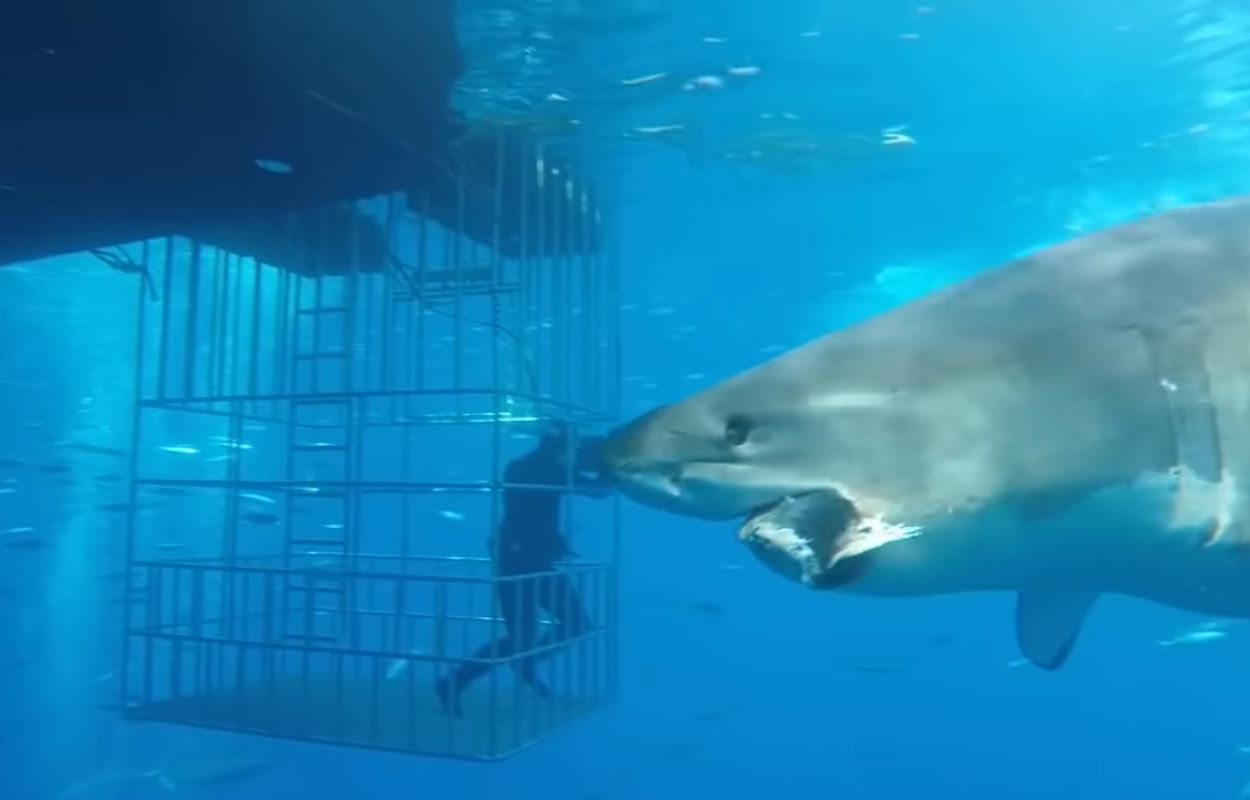
👇👇👇Change Language
A single killer whale, also known as an orca, was caught on camera hunting down and defeating a great white shark in a surprising attack.
Scientists said it was “really rare” and showed how skilled killer whales are at hunting. Two orcas off South Africa’s coast have been seen working together to hunt and kill sharks, like great whites.
“But we were surprised,” said shark expert Dr. Alison Towner.
Dr. Towner, from Rhodes University in Grahamstown, South Africa, has been studying these animals for many years. She and her team shared their new findings in a detailed report in the African Journal of Marine Science. The attack, captured on film in 2023 and available for viewing here, was described by scientists as quick and done alone. The male killer whale swiftly killed the shark and ate its liver, all within two minutes. In 2022, scientists recorded drone footage of two male orcas teaming up to hunt great white sharks. The orcas, nicknamed Port and Starboard due to their differently bent dorsal fins, were seen targeting the sharks’ livers.
During the hunts, the sharks tried to evade the orcas by circling them tightly, according to Dr. Towner.
In a recent incident, Starboard hunted alone. Researchers observed Starboard seizing a 2.5-meter juvenile shark, grasping its left pectoral fin, and repeatedly thrusting forward until the shark was disemboweled.
Dr. Luke Rendell from the University of St Andrews, a marine mammal scientist, praised the observation as remarkable. He noted the skill involved in the orca’s tactics, such as ramming the shark’s side and holding onto its pectoral fin to avoid its jaws. Dr. Rendell added that it’s not surprising for orcas in areas with many great white sharks to learn how to hunt them since the sharks provide a substantial food source. Killer whale behavior might be changing shark populations in certain areas. Scientists are uncertain about the reasons behind this behavior, but Dr. Towner mentioned that human activities like climate change and industrial fishing are putting a lot of pressure on our oceans.
Hunting sharks could have health risks for killer whales, such as ingesting toxins and metals found in shark flesh.
Dr. Towner explained that disruptions in the balance of top predators can affect other species too. For example, if white sharks aren’t being eaten by killer whales, endangered African penguins might face more predation from cape fur seals. Dr. Rendell noted that it’s unclear whether this behavior is new or just newly observed, but what’s remarkable is how skilled these animals are as hunters. Dr. Towner emphasized that every new discovery in these interactions between orcas and sharks is fascinating.



